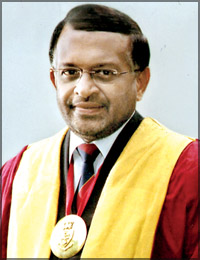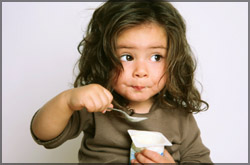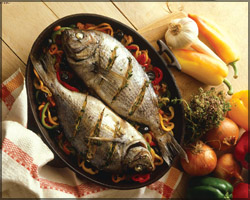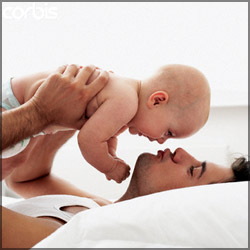|
Healthwatch |
Compiled and Coordinated by Edward
Arambewala |
World’s first human life respecting study from Sri Lanka
Prof. Colvin Gooneratne (MBBS, FRCP, FCCP, PhD) Professor of
Physiology, Colombo Medical Faculty and Chairman of the Centenarian Help
Group Sri Lanka founded in 2002, in association with the Daily News
health page Healthwatch, spoke at the 46th Annual sessions of the World
Congress of Integrated Medicines held at the BMICH in Colombo on
November 7.
|

Prof. Colvin Gooneratne receiving the commendation award at the
integrated Congress of the World at their 46th Annual Congress
held at BMICH in Colombo on Nov. 7 for initiating the first
Centenarian study in the world from Prof. Mineo Moritani |
|

Sri Lanka’s oldest Centenarian, 115 year old O.T. Engonona from
Galle founded in 2002 in Prof. Colvin Gooneratne’s Centenarian
study.
Pictures by Sudath Nishantha |
He said the setting up of this centenarian help group and study in
association with the Daily News, Sri Lanka goes down in the world
history as the first country in the world to have setup this human life
respecting group, where a person reaching 100 years in life,
irrespective of his social status, has to be credited by the human
community as an achievement in life which only a few can reach. He said
the concept of this idea came from the Healthwatch coordinator in the
Daily News, who is a senior journalist in the Daily News.
He went on to say the principal objectives of this group are
a) To celebrate respect for human life and fundamental rights of
people everywhere.
b) To emphasise the value of good health and healthy lifestyles.
c) To be companions for centenarians and their carers, among others.
He said in the centenarians whom the group met so far in Sri Lanka
numbering 47 the main features found were
a) Women were preponderant (37/48),
b) They were leading religious, simple, unstressful lives,
c) They were cheerful and had reasonably good memory,
d) ADL reasonably satisfactory,
e) They were well cared for by their family.
He thanked the Daily News and this page for publicity and advocacy.
Organisation of Professional Associations Sri Lanka (OPA) for honouring
Engonona 115 years old (now deceased) for honouring her.
State Pharmaceuticals Corporation (SPC) for logistic support.
He also thanked Dr. Asitha de Silva of the Faculty of Medicine,
University of Kelaniya for presenting our centenarian help and study
group report at the Oxford University in U.K.
S.J
Royal College of General practitioners - UK honours Dr. Preethi
Wijegoonewardena
|

Dr. Preethi Wijegoonewardena |
Recently the Royal College of General Practitioners UK awarded Dr.
Preethi Wijegoonewardena of Sri Lanka, who is the current Regional
President of WONCA for its Middle and South East Asian region.
Doctors say this is a rare honour conferred by the Royal College of
General Practitioners UK on a Sri Lanka doctor. The College of General
Practitioners in Sri Lankan in a release to the Healthwatch on this
says:
Dr. Preethi Wijegoonewardene, a leading Family Physician in Colombo,
was recently awarded an Honorary Fellowship of the Royal College of
General Practitioners of UK at their AGM in London on 14th November
2008.
He is a Past President of the College of General Practitioners of Sri
Lanka and a Past President of the Sri Lanka Medical Association. He is
the current Regional President of WONCA - Middle East South Asian
Region.
He has been actively involved in developing the MRCGP (Int) South
Asia exam since 2003 and has been an examiner at the MRCGP International
S. A. for the last 2 years.
He is actively involved in teaching family medicine to undergraduates
in the 3 medical faculties in Colombo and the Postgraduates for the
Diploma in Family Medicine.
Mental health of women
Today in many countries, the social environment - one of the most
important determinants of health - is characterised by poverty,
overcrowded living conditions, unemployment, job insecurity and
inequity, a growing number of broken marriages, man-made and natural
disasters, wars, ethnic violence, as well as violence against women,
children and the aged. Such an environment makes everybody vulnerable to
neuropsychiatric disorders. Researchers say, women are especially
exposed to these risks.
 Various
studies carried out in both developed and developing countries and in
different social groups suggest, for example, that symptoms of
depression and anxiety are more prevalent among women. Substance abuse
disorders, however, are more prevalent among men. Various
studies carried out in both developed and developing countries and in
different social groups suggest, for example, that symptoms of
depression and anxiety are more prevalent among women. Substance abuse
disorders, however, are more prevalent among men.
In rural Uganda, for instance, major depression was found to affect
22.6 per cent of women and 14.3 per cent of men under 65 years of age.
In urban Bahia, Brazil, neurotic and psychosomatic disorders struck 21
per cent of women, compared to only 8 per cent of men.
In the United Kingdom, of all people diagnosed as mentally ill 55 per
cent are women and 45 per cent are men. A study of a random sample of
9000 people in the community showed that 33 per cent of women, as
against 25 per cent of men, had psychiatric symptoms of anxiety and
depression.
Worldwide, the female to male lifetime prevalence ratios for major
depression and dysthymia (chronic depression) are in the ranges of
1.5-3.5 (women) to 1 (men) and 1.7-4.8 to 1 respectively.
There is also growing evidence that gender differences in rates of
depression relate to martial status. Being married seems to have a
protective effect on men but not on women, since the higher overall
rates of depression among women are largely accounted for by higher
rates among married females.
Furthermore, married women with children are at even greater risk of
depression than men. Here again social circumstances are to blame. For
example, most married men work outside their homes. A significant
proportion of women do not. They have to rely mainly on their role as
housewives for identity and self-esteem. This role carries many
frustrations, such as constant routine, isolation and lack of income. In
addition, the role of the housewife has been increasingly devalued in
modern society.
No better is the situation for women entering the job market. They
have to face economic discrimination and job insecurity. Much of the
work available to them is poorly paid and labour intensive. The combined
pressures of conflicting home and work responsibilities on working women
can be extremely difficult to cope with. Unfortunately, not many men
appreciate this.
Women with a stable partner and one or two children, and who have a
part-time income generating job, seem to be less exposed to depression
and anxiety disorders.
In addition, violence against women, has been widely recognized as a
growing public health problem. Certain studies have shown that up to 50%
of women have been physically abused by their partners at some time in
their lives. Half of the abused have been raped by their partners as
well.
The issue of women’s health is high on the international agenda.
This issue was discussed at length at the Fourth International
Conference on Women in Beijing (1995). The new interagency UN programme
“Nations for Mental Health”, initiated by WHO, has a special component
on the mental health of women.
(From material sent by Doctor’s Wives
Association, SL)
 Reuters
health news summary Reuters
health news summary
Scientists track
genetic changes in leukemia
Distinctive genetic changes occur in the cancer cells that trigger
relapse in patients with the most common type of childhood cancer,
according to a study that may offer new hope for beating the disease.
 Writing
in the journal Science on Thursday, the scientists described key genetic
differences in cancer cells of children with acute lymphoblastic
leukemia, or ALL, when they were first diagnosed compared to when they
had a relapse. Writing
in the journal Science on Thursday, the scientists described key genetic
differences in cancer cells of children with acute lymphoblastic
leukemia, or ALL, when they were first diagnosed compared to when they
had a relapse.
Eating fish may
prevent kidney decline in diabetics
Eating fish at least twice a week seems to reduce the incidence of
kidney disease in patients with diabetes, according to findings from a
large British study. Although diabetics are advised to limit dietary
protein to delay the progression of kidney disease, recent observations
suggest that the benefit to the kidneys may have to do with “the protein
source rather than quantity,” the investigators note in the American
Journal of Kidney Diseases.
Indigo extract
effective treatment for psoriasis
Taiwanese investigators report that an ointment made from an extract
of Indigo naturalis is effective in treatment-resistant plaque psoriasis
— and the treatment appears to be safe. Indigo naturalis is a plant that
is the source of a dark blue dye. The extract has been used for
centuries in traditional Chinese medicine for the treatment of
psoriasis, the researchers explain in the Archives of Dermatology.
 More
evidence ties media violence to teen violence More
evidence ties media violence to teen violence
Children who get heavy doses of media violence may be at greater risk
of violent behavior as teenagers — even when a range of other influences
is considered, according to a new study. The findings, the authors say,
add to evidence that violence-packed TV shows, movies and video games
can affect some children’s behavior.
Dairy foods help
kids build stronger bones
Eating plenty of dairy foods, meat, and other high-protein foods in
childhood result in stronger and healthier bones in adolescence , a new
study in the Journal of Pediatrics shows.
Boys and girls who ate at least two servings of dairy a day
throughout their childhood had denser bones in their teens than their
peers who ate less, Dr. Lynn L. Moore of Boston University School of
Medicine and her colleagues found. Eating four or more servings of meat
or other protein-rich foods also boosted bone density.
REUTERS
Some gentle and effective ways to stop your baby crying
* After checking to make sure that you baby is neither hungry, wet
nor sick, given him a pacifier or a rusk/biscuit.
* Give your child an age-appropriate toy or something safe that will
occupy and interest him. For instance, even a simple empty cardboard
container or jangling a bunch of keys can do the trick.

* Babies are often quietened by soft and soothing music. If there is
none at hand, create your own - sing a lullaby or any other pleasant
song you can think of!
* Sociable children can sometimes be pacified by another person whom
they are familiar with and whom they seem to trust, so find a favourite
aunt or neighbour and let them try.
* Simply pick your baby up and hug him gently or hold him close to
you. Very young infants can be carried around close to the body in a
baby-carrier or “Snugly”. Alternately you can improvise and make one out
of an old sheet for instance, ensuring that the baby’s head and neck are
supported at all times.
*Run a vacuum-cleaner or any other appliance that has a low, rhythmic
sound within hearing - range of the infant.
* Accept the fact that ALL babies cry a lot, more when they are
teething.
Risky play activities
* Repeated, vigorous tossing of a child into the air
* Jogging or running while carrying an infant on the back or
shoulders
* Bouncing a child repeatedly on the knee (“riding a horse”)
* Swinging the child around by the ankles
* Spinning the child around
* Shaking the child vigorously to put him to sleep Leana Pieris |

